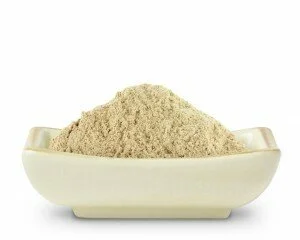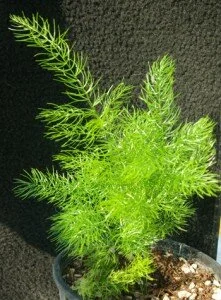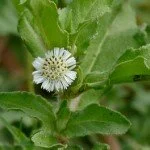What is Shatavari?
Asparagus racemosus, commonly called Shatavari, is a species of asparagus found in the Himalayan regions of India and Nepal as well as in Sri Lanka and Africa. Other names for the herb in various Indian languages include vrishya and shatuli. The name “Shatavari” is derived from two words – “shat” meaning “hundred” and “vari” meaning “cure”. The herb is commonly used in Ayurveda or traditional Indian medicine.

Possible Benefits Based on Scientific Evidence
1. Enhancing breast milk production
Root extracts of Shatavari is utilized in Ayurveda to enhance milk secretion in lactating women with scientific studies showing enhanced milk yield in animals. Other studies on postpartum women, lacking in milk secretion, have shown positive results as well.
However, further studies are still required and women should talk to physicians before using Shatavari during breast-feeding and pregnancy.
2. Increasing sexual drive in both men and women
Root extracts of this herb have been tested on animals with evidence of improved sexual behavior. This provides some scientific basis for the uses of Shatavari in increasing libido and improving sexual performance in women and men.
3. Restoring hormonal balance in women
In women affected by fluctuating hormonal levels, the plant extracts can restore the hormonal balance. Experiments performed on pregnant animals showed that the estrogenic effect on reproductive system and mammary glands was caused by the steroidal saponins (Shatavarins I-V) present in the herb.

Shatavari Images
4. Positive effects on infertility and menstrual disorders
Shatavari is used in Ayurveda to treat menstrual disorders like premenstrual syndrome, dysmenorrhea, and irregular uterine bleeding before and after menopause. The herb is considered beneficial for postmenopausal women when consumed with saffron milk. It may also be useful for preventing and treating fertility issues like endometriosis, uterine fibroids and ovarian cysts.
Scientific evaluations on animals showed that the plant extracts could relieve menstrual disorders. A study conducted on pregnant women in The Ayurveda Hospital, Nepal, showed the herb to help in having a healthy pregnancy.
5. Improving vitality by stimulating immune system
The root extracts of this plant are utilized in treating general weakness. The herbal health drink Shatavari Kalpa is commonly used for regaining vitality and vigor by stimulating the immune system.
The herb’s stimulating effect was identified in a research performed by members of Interdisciplinary School of Health Sciences, University of Pune. The herb’s antioxidant effect responsible for boosting immune system was exhibited in a human study.
6. Preventing tumor and cancer
Shatavari is known to inhibit tumor incidence, helping to prevent cancer. Laboratory studies have shown that animals feeding on Shatavari extract diet could avert the incidence of tumor and chemical-induced cancer of mammary glands.

Shatavari Photos
7. Relieving pain
Its analgesic or pain-relieving properties are believed to come from its saponin, triterpene, and alkaloid contents. Clinical studies have revealed that application of this plant extracts on mice could help in treating pain.
Fresh juice obtained from the roots and mixed with honey is a traditional remedy for pain and burning. Shatavari oil is known to revitalize stiff joints and soothe sore muscles.
8. Improving cough and bronchitis
This herb is prescribed in traditional medicine to alleviate cough, bronchitis, and other infections of throat. It has been observed in clinical analysis that chemical-stimulated cough in animals can be prevented largely with methanolic root extracts.
9. Treating ulcerative disorders in stomach
Traditionally this herb has been used in Ayurveda to treat gastric ulcers and dyspepsia. It is believed to help in digestion by promoting smooth passage of food from the stomach to duodenum. Many studies have illustrated the herb’s ulcer-healing effects on administration of dried root powder in animals and humans.
10. Preventing infections caused by microbes and mollusks
Clinical researches have showed antibacterial, antiprotozoal, and molluskicidal properties of Shatavari root. A paste made with boiled leaves of Shatavari dipped in clarified butter or ghee can relieve the burning sensations caused by bullae and smallpox.
11. Reducing blood glucose and increasing insulin secretion
There is growing interest in utilizing Shatavari for diabetes because several animal studies have shown the herb to be able to reduce blood glucose and stimulate insulin secretion.
12. Positive effects on weak heart
The herb is traditionally believed to aid those with a weak-heart both emotionally and physically. However, laboratory studies conducted on animal heart have demonstrated mixed outcomes.

Shatavari Pictures
13. Improving stress-related disorders
Shatavari roots are utilized to treat people affected with nervous and stress-related disorders like restless sleep, disturbing dreams, anorexia, and insomnia. Behavioral experiments on rats have produced positive response.
14. Preventing kidney stones
This herb is a powerful diuretic, helping to flush out toxins, thus reducing the risk of kidney stone formation. Although animal studies have confirmed that the herb inhibits stone formation, human studies are required to support this claim.
People suffering from edema caused by impaired kidney function should talk to healthcare professionals before using this medicinal herb.

Shatavari Root
Safety and Precautions
Side Effects
- Allergic reaction to the herb may lead to inflammation of skin, coughing, runny nose, itchy conjunctivitis, occupational asthma, and itchy conjunctivitis
- Use of Shatavari might cause weight gain in some people
Interactions
Those on a lithium supplement or medication should consult their physician before using Shatavari, as the herb is known to interfere with the body’s lithium eliminating functions, often leading to serious side effects.

Shatavari Powder

Shatavari Plant
References
http://en.wikipedia.org/wiki/Asparagus_racemosus
http://www.webmd.com/vitamins-supplements/ingredientmono-1167-asparagus%20racemosus.aspx?activeingredientid=1167&activeingredientname=asparagus%20racemosus
http://www.healthline.com/natstandardcontent/asparagus#1
http://www.himalayawellness.com/products/pharmaceuticals/shatavari.htm
http://ayurveda-foryou.com/ayurveda_herb/shatavari.html
http://www.ncbi.nlm.nih.gov/pmc/articles/PMC4027291/





